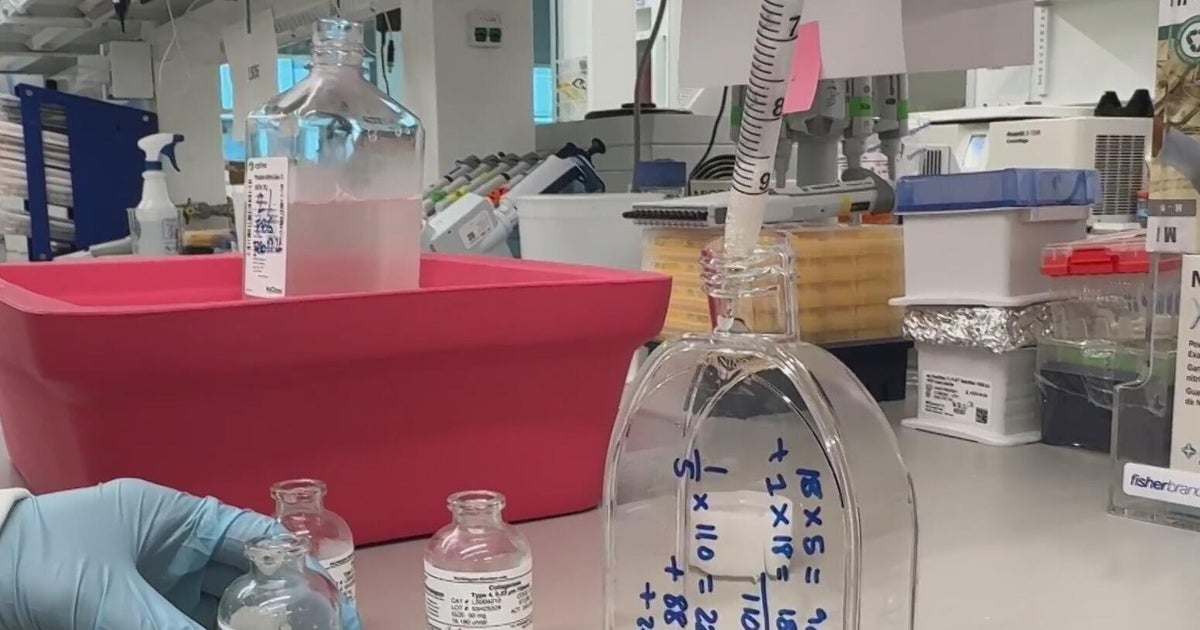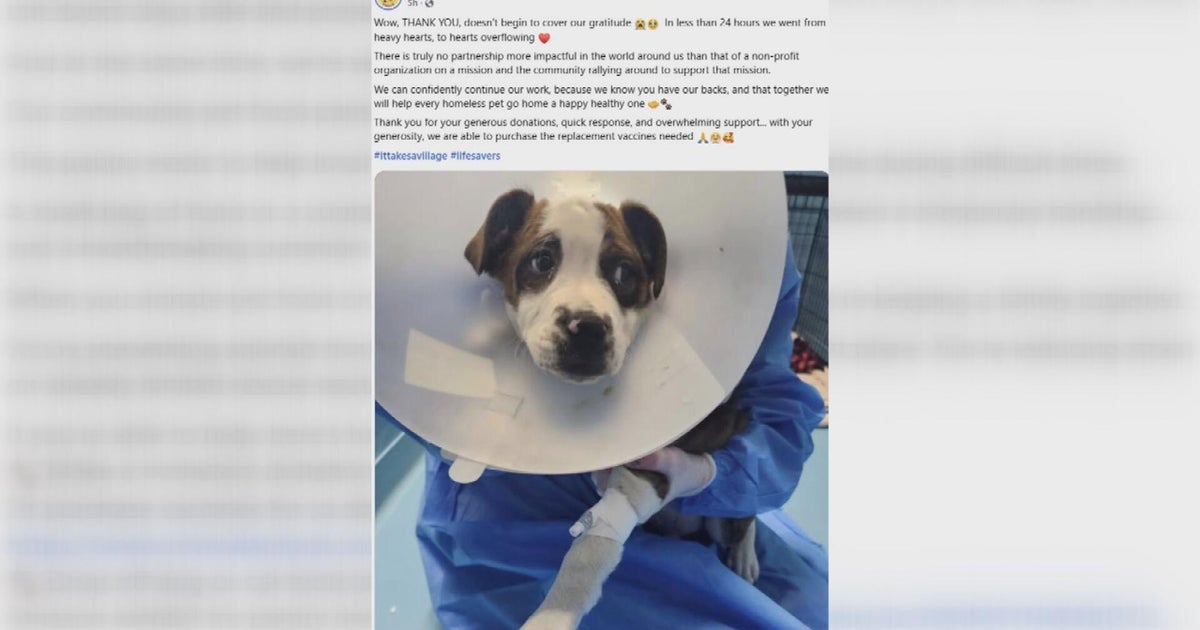Scientists ramp up efforts to improve "antiquated" flu vaccines
NEW YORK -- The FDA chose the four strains of the flu that will be targeted in next year's vaccine Thursday. But scientists at the National Institutes of Health (NIH) are looking far beyond next year, as they try to develop a universal flu vaccine.
It's the same problem each year -- making a vaccine against the flu virus is like trying to hit a moving target.
"It changes," said Dr. Anthony Fauci. "It mutates, just enough to get it out of the range of the umbrella of the protection of the vaccine."
Fauci heads up vaccine research at the NIH. He says we need a brand new approach.
"We've been using this technology of inactivated virus that you grow in chicken eggs since the 1940s. This is antiquated. We have to graduate from that," Fauci said.
In the six months it usually takes to create the vaccine using eggs, the virus can dramatically change. The solution is a universal flu vaccine that would protect against multiple strains of the virus for years -- perhaps a lifetime.
- Amid grim flu season, scientists work to find "holy grail" flu vaccine
- Nasty flu season showing signs of slowing down in U.S.
Flu viruses are made up of molecules that look like mushrooms, with heads and stalks. The current vaccine only targets the head, but that part is unstable, often changing. The result is a flu vaccine that only works some of the time. The focus of research now is the bottom, or the stalk, which doesn't change, giving the vaccine a chance to work.
"We may not ever get a perfect universal flu vaccine," Fauci said. "But we have to have some version of a universal flu vaccine. We cannot accept that we won't get there.






